News
-
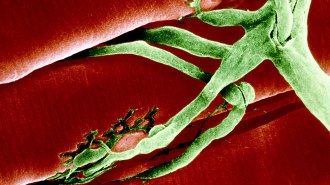 Health & Medicine
Health & MedicineBlocking an aging-related enzyme may restore muscle strength
Treating old mice with a drug that inhibits a “gerozyme” restored muscle strength, which can diminish with aging.
-
 Space
SpaceHere’s how citizen scientists can help during the 2024 solar eclipse
The sun will be near the peak of its activity cycle during the eclipse on April 8, 2024, making it a great time to crowdsource solar research.
-
 Physics
PhysicsTiny accelerators get electrons up to speed using lasers
In a first, chip-scale accelerators revved up electrons while also confining them into a beam.
-
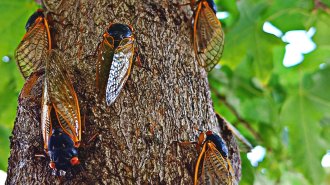 Animals
AnimalsScientists debunked a long-standing cicada myth by analyzing their guts
The lack of obvious chewing mouthparts may have made casual observers think that adult cicadas don’t need to feed. But that’s not the case.
-
 Planetary Science
Planetary ScienceHere’s another strike against Venus having copious lightning
Past data and the Parker Solar Probe’s new discovery of weird whistler waves overturn the idea that Venus’ hellish atmosphere has a lot of lightning.
By Sid Perkins -
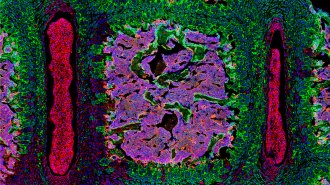 Health & Medicine
Health & MedicineNewly identified stem cells can lure breast cancer to the spine
A new type of stem cell discovered in mice and humans might explain why cancer that spreads to other body parts preferentially targets the spine.
By Meghan Rosen -
 Astronomy
AstronomyThe black hole–powered jet in galaxy M87 is making stars explode
Hubble Space Telescope data show a surprising number of nova blasts along the jet of high-speed gas coming from the galaxy M87.
By Ken Croswell -
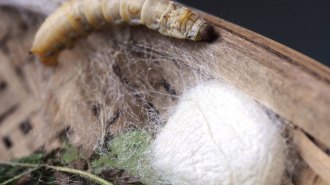 Animals
AnimalsIn a first, genetically modified silkworms produced pure spider silk
An effort to engineer silkworms to produce spider silk brings us closer than ever to exploiting the extraordinary properties of this arachnid fiber.
-
 Neuroscience
NeuroscienceWhat a look at more than 3,000 kinds of cells in the human brain tells us
A wide-reaching look at the cells that build the brain, detailed in 21 studies, showcases the brain’s cellular diversity and clues about how it works.
-
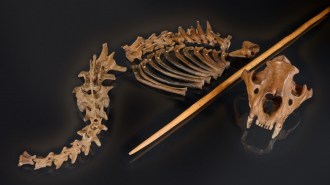 Archaeology
ArchaeologyNeandertals hunted cave lions at least 48,000 years ago
A new study reports the first direct evidence of Neandertals slaying the big cats, and the earliest evidence of any hominids killing a large predator.
By Bruce Bower -
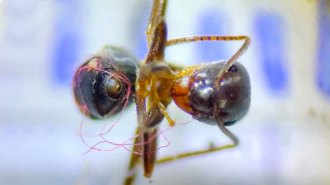 Life
LifeAnts may be the first known insects ensnared in plastic pollution
At this point, it’s unclear whether this type of trash harms insects, but the discovery highlights the ubiquity of plastic pollution in the wild.
By Jake Buehler -
 Space
SpaceNASA’s first look at a sample from asteroid Bennu reveals life’s building blocks
Scientists have begun to analyze roughly 250 grams of Bennu, which could offer insight into solar system formation and life’s origins on Earth.